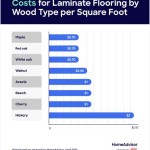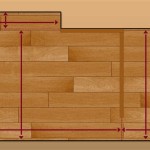The Radiant Truth: Essential Aspects of Radiant Flooring Cost
Radiant flooring, a luxurious and energy-efficient alternative to traditional heating systems, has gained widespread popularity in recent years. However, before embarking on a radiant flooring installation, it's crucial to understand the factors that influence its overall cost.
1. Square Footage
The size of the area to be heated is a primary determinant of radiant flooring cost. Larger spaces require more materials and labor, which drives up the overall expense. Accurately measuring the square footage is essential for accurate cost estimation.
2. Heating System Type
There are two main types of radiant heating systems: electric and hydronic. Electric systems utilize heating cables or mats, while hydronic systems circulate hot water through pipes embedded in the floor. Hydronic systems tend to be more expensive than electric systems due to the additional materials and labor involved in pipe installation.
3. Flooring Material
The type of flooring material you choose affects the cost of radiant flooring. Natural stone and ceramic tiles require a layer of cement board or a thicker subfloor, which can increase installation costs. Carpet and vinyl tend to be more cost-effective options as they can be installed directly over the radiant system.
4. Labor Costs
The complexity of the installation process contributes to labor costs. Installing radiant flooring in a new construction project is generally less expensive than retrofitting it into an existing home. Experienced contractors with specialized skills charge higher rates for their work, but they ensure a high-quality installation.
5. Thermostats and Controls
Thermostats and control systems are essential components of any radiant flooring system. Programmable thermostats and zoning systems enable efficient temperature control, but they can add to the overall cost. Consider the features and functionality you want before purchasing these devices.
6. Insulation
Proper insulation is crucial for maximizing the efficiency of radiant flooring. Thicker insulation reduces heat loss and lowers energy consumption. High-quality insulation materials come at a higher cost but provide long-term savings.
7. Energy Costs
While the initial cost of radiant flooring can be significant, it offers long-term energy savings. Radiant systems distribute heat evenly throughout the room, eliminating hot or cold spots and reducing energy waste. The specific energy costs will vary depending on the type of system, flooring material, and local energy rates.
Conclusion
Understanding the essential aspects of radiant flooring cost empowers homeowners to make informed decisions. By considering the factors discussed above, you can estimate the potential expenses and weigh them against the benefits of this luxurious and energy-efficient heating solution.

Average Radiant Floor Heating Cost In 2024 Forbes Home

Radiant Floor Heating Cost To Install Heated Floors Fixr

Radiant Floor Heating Cost In 2024 Heated Floors

Radiant Heat In Your Home Is It Worth

How Much Does Radiant Floor Heating Cost Pros And Cons

Radiant Floor Heating Cost To Install Heated Floors Fixr

The Cost Of Installing A Radiant Floor Heating System

2024 Heated Floors Cost Remodeling Calculator

On Radiant Floor Heating Costs Tips And Comparisons Ratehub Ca

Radiant Floor Heating Cost To Install Heated Floors Fixr
Related Posts








